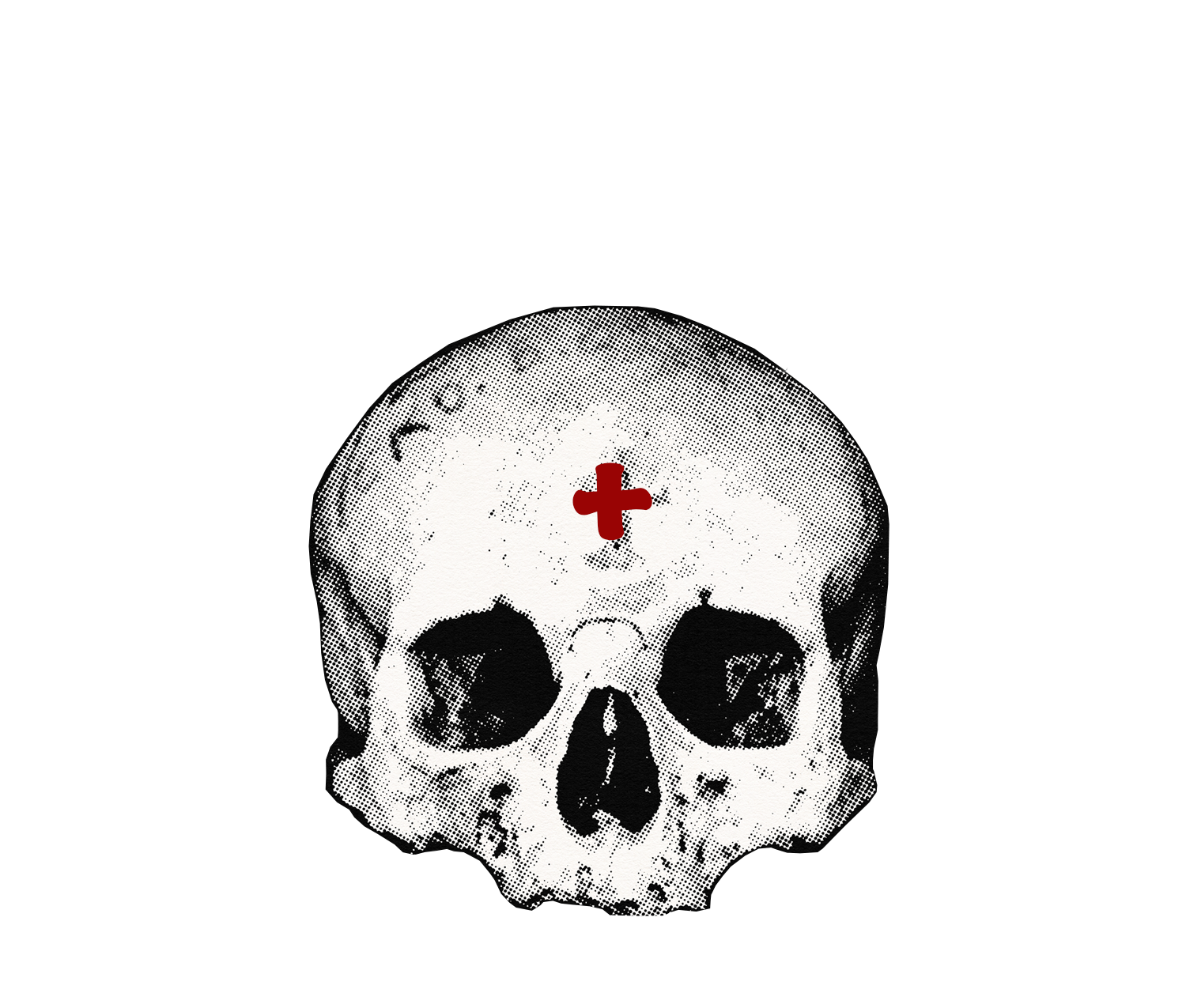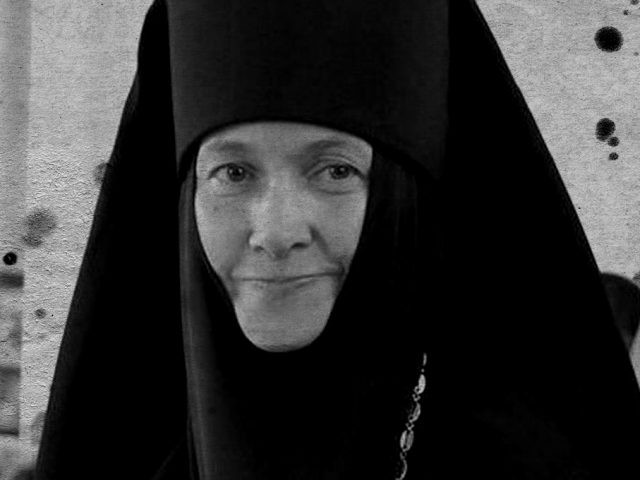The Story of Abbess Makaria (Semenova)
How I was planning to become a writer
I read a lot from childhood, and after school I entered the journalism department at Kazan State University. I had four years and then I went to Moscow to enter the Gorky Literary Institute. I wanted to become a writer and had already written something myself. I entered with it. I was searching for my style, dreaming of learning to write.
Neither I nor my friends had any spiritual books, and no one ever spoke about faith with us. Only much later did I understand why the Bolsheviks destroyed liturgical books and spiritual literature: After all, they are the word of God, they are grace. Modern literature softens the soul, prepares you to meet God, but spiritual literature leads to Him.
When I began to read The Tale of Bygone Years by St. Nestor the Chronicler, I immediately felt the depth of this work. Then I was able to read the Gospel and I was so struck by this Divinely inspired book that my dream of becoming a writer left me forever: No one will ever write anything better than the Gospel!
“On the other side of the wall was a party, and I was doing prostrations”
I was born in 1967, and grew up, like all my peers, in an atmosphere of atheism. True, my grandmother was a believer, and my mother helped her, at her request, to go to church, but she herself never went. She believed that faith is the lot of old ladies and a relic of the past. My parents (my father—a head engineer, my mother—a teacher) didn’t even baptize me.
My friend from the Literary Institute took me to church and said: “Fr. Vladimir, you have to baptize Elena (my name in the world)!”
“Let her prepare herself. We’ll baptize her at the end of Great Lent,” Batiushka answered.
It was 1994, and I was in my next to last year. After Baptism, my interest in the writer’s path disappeared, as well as the attraction to the happy student life. I remember, in the dormitory, behind the wall, there’d be a party going on, music, laughter, and I would be praying, doing prostrations.
Encounters, scattered throughout my life
In the world, my first church was the Church of the Holy Unmercenaries Cosmas and Damian on Stoleshnikov Lane. I went there every Sunday, and I still feel the help of these saints: There have been encounters with them scattered throughout my life. In the monastery, my first helper was Nun Damiana. When we were restoring Gremyachevo Monastery, we really needed cement; I realized how to find it on the feast of Sts. Cosmas and Damian, and a man by the name of Cosmas (Kuzma) brought it to us.
When I was young and planning to leave Kazan for Moscow, my cousin had a son, Artem. Her husband left her with the baby, and my heart ached for this little red-headed boy. I was still unbaptized then and didn’t know how to pray, but I think the Lord received my pain of soul as prayer. Later, having been baptized, I prayed for Artem for real, and now I have the feeling that his guardian angel helps me everywhere: All of my benefactors are named Artemy.
How we weave the “carpet” of our lives with our thoughts and actions
When I muse over the coincidences in our lives, it seems to me that it is by our thoughts and actions that we weave the “carpet” of our lives. The Lord sends some people, arranges some circumstances, and watches how we behave in these circumstances. The carpet is made of smooth fabric, but the opposite side is full of tiny knots. The Lord embroiders it together with us, weaving the pattern of our lives.
If we don’t accept what He sends us, then in the future we will again stumble across that knot that we ourselves made by our incorrect reaction to what is happening. Where we didn’t pity someone or refused to help someone, there in the future we will find ourselves deprived of help, unable to find the help we will need.
We have to grow spiritually, but often we don’t grow, we don’t find grace, we don’t do the good deeds that the Lord expects from us. And similar situations repeat again; it’s like we were left in second grade and we have to do the homework that we didn’t do before.
The circumstances that await us in the future are determined by our past actions, and the weight of our present life is determined by our past misdeeds. If we understand this, then the path to repentance is open to us.
Blown about by evil passions, like clouds by the wind
There used to be a culture of Orthodox education. People understood well what is a sin, what is a passion. When a child gets used to confession from childhood, he learns to keep track of good and evil thoughts and has an understanding that he has to cut off the evil thoughts.
But now I see many young people who are burdened with passions while still quite young. They don’t have the slightest idea of the spiritual life, of spiritual battle, and they are blown about by evil passions like clouds by the wind.
Inexperienced and unaware of what is happening to them, true spiritual babies, having no concept either of confession or Communion, they lose their purity and health even in adolescence, allowing themselves to do all kinds of grievous things, stopping only sometime around twenty-five—twenty-seven, and then only because they already have no more strength or health to continue living according to the passions. Look: quite a young man, and completely exhausted by the passions.
They get married and then they get divorced, they have children and they can’t give them anything good, because they didn’t receive anything good themselves. They don’t know how to bring children to faith, how to teach them to fight with the passions, because they weren’t taught this themselves.
The decades of persecution against the Church did their job: Several generations haven’t the slightest idea about God, about spirituality, still believing that faith is the lot of old women and those who don’t fit into “successful” life. We need a real shake-up so these people would “wake up” and think about the meaning of life and about faith, not just float on the turbulent flow of everyday life, overwhelmed by numerous passions.
So why had we come to the monastery?
After the fifth year, my friend went to St. Nicholas-Chernoostrovsky Monastery in Maloyaroslavets. Now she is Mother Nektaria, the abbess of St. Seraphim-Holy Protection Monastery in the Kemerovo Diocese. I finished the Literary Institute in 1995 and followed my friend.
I was no longer attracted to anything in the world, although I had a good education, a good profession, good friends, and even a worthy fiancé.
Metropolitan Tikhon (Shevkunov) of Pskov and Porkhov recalls that when he came to God in his youth, his entire life changed:
The only place where I felt good now was church. Neither friends, nor entertainment, nor a once-coveted job—nothing touched my heart. Even books, even my beloved Dostoyevsky and Tolstoy did not hold my attention. I realized that I had completely changed. Or perhaps I had been hopelessly ruined for this world, so dear to me before. A new life was opened to me, compared to which everything I had lived in my twenty-four years could not even compare.
The Lord had already called the young man, and this call was similar to that heard by the young fishermen from Capernaum: They simply could not continue their ordinary lives and, leaving everything behind, they hurried after the Lord, becoming His disciples.
Later, after having labored in monasticism for several decades, Vladyka Tikhon shared:
So why had we come to the monastery? And why were we planning to stay here for the rest of our lives? We knew very well. It was because, for each of us, a new world had suddenly opened up, incomparable in its beauty. And that world had turned out to be boundlessly more attractive than the one in which we had previously lived our young and so-far very happy lives.
These words of Vladyka Tikhon very well convey my state any my aspirations at that time.
Everyday monastic life
My everyday monastic life began. It was a spiritual ascent, despite the unsettled state of the monastery that was being reborn and rebuilt. I received the riassophore tonsure in 1996, and stavrophore in 2001 with the name Makaria. They say that in the riassophore tonsure, you soar from the grace granted to you: The Lord grants you to taste the joy of the monastic life, so you would remember this joy and strive for it.
But in the stavrophore tonsure, you feel the weight of your monastic mantia, and you are sent difficulties for spiritual growth. The Lord allows temptations to come that you might gain spiritual experience.
When I look back at my monastic life, I see there were difficulties, but I mainly recall only what was bright and joyful—the joy of fulfilling my duty. If you hadn’t overcome your difficulties then, it wouldn’t be so joyful now.
The Lord always gives what could come in handy
Some Athonite elders came to visit us at St. Nicholas Monastery, and we learned from them, from mouth to mouth, the traditions of the revelation of thoughts, the Jesus Prayer, and the ability to see your passions and do battle with them.
Our sisters had to take turns doing obediences at the Gorny Monastery in Jerusalem. I lived there half a year at first, and then another three months. I helped in the kitchen and in the trapeza. I had the chance to visit the holy places—it was a visible Gospel. Then when I would read the Gospel, everything would appear before my eyes.
The abbess would send the sisters to the dependencies, and we restored Gremyachevo, Rozhdestveno, and Karizha. We had to milk the cows, bale hay, work in the garden, and learn construction. The Lord always gives something that could come in handy: I learned to pray, to build churches—and it all came in handy for me when I became an abbess. I learned a lot going through all the obediences.

How I was thinking about a cow but became an abbess
Once, Metropolitan Longin of Saratov and Volsk asked our Abbess Nikolaya for a nun who could become the abbess of a reviving monastery. Mother offered two sisters, including me. She told me about it, but (for my humility) added: “Your chances are precisely zero. What kind of abbess would you be?!”
Therefore, I didn’t think about the abbacy and wasn’t particularly worried—all of my thoughts at that time were occupied with the cow at the dependency that was getting ready to calve.
Vladyka Longin explained that the territory of a former monastery in Volsk, which for many years was used for other purposes, had finally been returned to the Church. He added that the monastery church there was in ruins and needed to be rebuilt.
The second sister who was “inspected” by Vladyka together with me was a good builder, and I said: “Holy Master, this sister is a wonderful builder.”
But he spoke with me and chose me for some reason.
How I didn’t want to leave my native monastery
I went back to the dependency to grab my simple belongings and head for a strange, unfamiliar city. My soul was full of grumbling: I really didn’t want to leave my native monastery.
I was behind the wheel and I was worried. It started snowing and it became slippery. The car in front of me braked sharply, but I didn’t have time to slow down and lightly hit the other guy’s bumper. The driver got out, looked at me, sighed, and said: “Mother, what a difficult day it has been today!”
He didn’t yell at me—he just got into his car and drove off; and the grumbling in my soul stopped, because I immediately realized that I was grumbling about the bishop’s decision.

How we revived the monastery
I arrived in Volsk to restore the destroyed monastery in 2013. My assistant nun greeted me with love. In a month we had converted the former assembly hall into a home church named for St. Nicholas the Wonderworker and served our first service. We read the akathist to the saint and felt his support.
In May 2014, we broke ground for the construction of a new church—we built it over the course of two years.
The monastery has a crisis center for women in difficult situations; at present there are seven mothers and ten children, from nine months to three months old. Basically, these mothers are themselves orphans who never received a proper education or love. They are fully provided for here. If I buy groceries for the sisters, I buy the same thing for the mothers and children of the crisis center. They have their own trapeza, kitchen, and laundry room, and they have teachers, psychologists, lawyers, and doctors helping them.
That’s how we live in our Volsk-Vladimir Monastery. We have nine sisters now.

Ever year, a cross procession comes to us from all the churches in the city. The residents of Volsk were eagerly awaiting the restoration of our ancient monastery.
After the revolution, thirty-seven nuns of our monastery were shot, and we want to build a chapel in honor of these martyrs for Christ. It is obvious that they are praying for us, because we feel their strong spiritual support.
I think it’s precisely thanks to their prayers that we were able to revive the monastery and build a church so quickly.


The crisis center is in a new building here, so the mothers and children can live with amenities, while the sisters are still living in the old building, which still needs to be restored. This requires a lot of money, so we will pray for all who wish to help us.
Volsk-Vladimir Convent:
Contacts:
Address: Russia, Saratov Oblast, Volsk, Proletarsky 39 (Россия, Саратовская область, Вольск, пос. Пролетарский, д. 39)
Landline telephone: +7 (84593) 5-42-81
Cell phone: +7 (987) 313-62-71
E-mail: volsk-monastyr@mail.ru
Bank info:
ИНН (taxpayer ID number): 6441999595
КПП 644101001
Р/с (transactions account) 40703810900080005219 в ОАО «НВКбанк» (NVBank)
БИК (bank identification code) 046311751
К/с (correspondent account) 30101810100000000751
Abbess Makaria (Semenova)
Recorded by Olga Rozhneva
Translated by Jesse Dominick
Source: Pravoslavie.ru
8/16/2019


